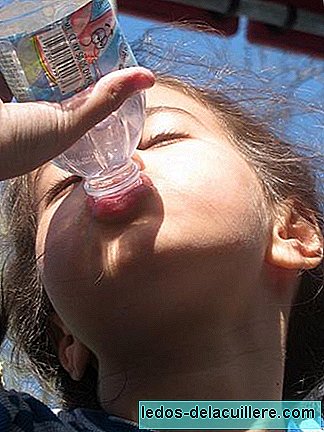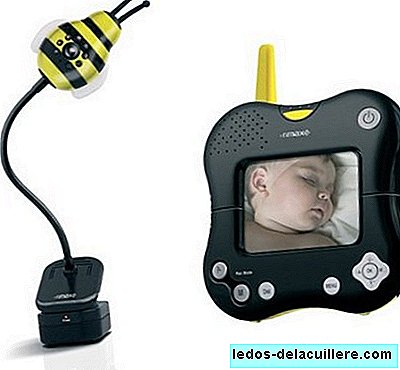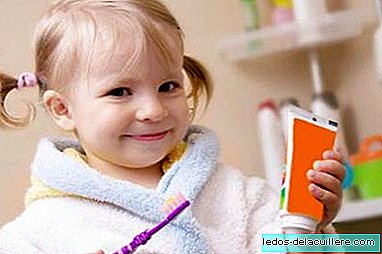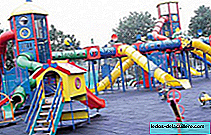
Both for its organic conditions and for the percentage that the liquid represents in your body, the water needs in children are greater than those of adults. Children have a higher risk of dehydration, a disorder that can have serious consequences.
Therefore, we will talk about the importance of keeping the child hydrated, especially in the summer season, when due to the high temperatures they lose more liquid through sweat.
How much water should we give them?
In children under two years of age, the proportion of water is between 70 and 80 percent of their body weight, while in adults it is between 50 and 60 percent. That is why children need to drink more water than adults. Hence the importance of water consumption in childhood.
Therefore, to maintain adequate hydration we must offer them water frequently, approximately every two hours, even before they feel thirsty.
The amount of daily water a child should drink is between 50-60 ml per kilo of weight, that is to say half a liter of water for a 10 kg baby, for example.
Because of the rapidity with which children lose water, the ration is proportionally higher than that recommended for adults, who are advised to drink 35 ml per kilo of weight, between 8 and 10 glasses a day.
Keep in mind that water is also provided through food, especially fruits (those that contain the most water), vegetables, juices, gazpachos, etc.
Breastfed babies do not need to drink water

It is a fairly frequent concern among mothers. Whether or not babies need a bottle of mineral water in addition to mom's milk. The answer is no.
If the baby drinks exclusively breast milk, up to six months should not drink water, nor juices or other drinks. Only breast milk
Almost 90 percent of breast milk is made up of water and it contains the necessary nutrients and minerals to meet the baby's nutritional requirements and keep it properly hydrated.
In times of heat, what you should do is put the baby to the chest more frequently, since it will eliminate fluids through sweat and we must constantly replenish them to avoid an imbalance.
Avoid dehydration
The dehydration It occurs when the body loses excess fluid. Therefore, we must know how to recognize it and be aware of certain symptoms that could indicate that the child is dehydrated. As for example: the fontanelles of the newborn are sunk, the skin dry and pale (slightly grayish), the child urinates less than usual and dark in color, poor saliva, dry and hard stools, lack of mood, drowsiness, etc. .
Not only can heat lead to dehydration, you also have to be vigilant in the event that the child has diarrhea, most often due to a gastrointestinal infection. We should avoid it as much as possible with proper hygiene measures and if it has not been possible to avoid it, make sure to keep the baby hydrated by water or serums.
The importance of keeping the child hydrated It is vital to avoid a shock from dehydration that could cause sequelae in the baby and the child.
Photos | edenpictures and Mothering Touchen Flickr In Babies and more | With heat, keep the baby well hydrated, The importance of water in infant feeding












